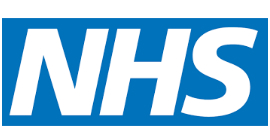Focus ADHD
Attention deficit hyperactivity disorder (ADHD) is a behavioural disorder that includes symptoms such as inattentiveness, hyperactivity and impulsiveness and affects around 5% of school-aged children worldwide[1]. ADHD can have a large impact on personal, academic, family and social interaction. In the UK children can wait on average 18 months from their first appointment to receiving a formal ADHD diagnosis [2] and the annual cost of ADHD assessments to the NHS is estimated at around £23m [3].
Health Innovation Networks are working with mental health trusts and community paediatric services to improve the assessment process for Attention Deficit Hyperactivity Disorder (ADHD) using computer-based tests (measuring attention, impulsivity and activity). Focus ADHD is a Health Innovation Network national programme. Health Innovation Networks, including Health Innovation Manchester are supporting its wider spread during 2020-2023.
The Focus ADHD intervention uses technology created by health technology company Qbtech Ltd. The technology, QbTest, measures a patient’s attention, impulsivity and motor activity all at the same time. These indicators are core symptoms of ADHD and accurate measurement adds objectivity to support timely diagnosis.
The intervention has shown a reduction in time to diagnosis by 153 days (median). [4] Using this intervention increases staff capacity by reducing the number of appointments needed for diagnosis and by ruling out ADHD sooner for ambiguous cases. Releasing capacity of clinicians can help reduce waiting lists and allow clinicians more time to concentrate on complex cases.
All eligible sites within GM have now implemented QbTest, with a total of 15 services across 5 Trusts adopting the objective measure. In total more than 5,500 assessments of children aged under 18 have taken place since 2019.
References
[1] NICE. (2008). Attention deficit hyperactivity disorder: Diagnosis and management of ADHD in children, young people and adults. Clinical Guideline 72. London: National Institute for Health and Clinical Excellence.
[2] Fridman, M., Banaschewski, T., Sikirica, V., Quintero, J., & Chen, K. S. (2017). Access to diagnosis, treatment, and supportive services among pharmacotherapy-treated children/adolescents with ADHD in Europe: Data from the caregiver Perspective on Pediatric ADHD survey. Neuropsychiatric Disease and Treatment, 13, 947–958.





